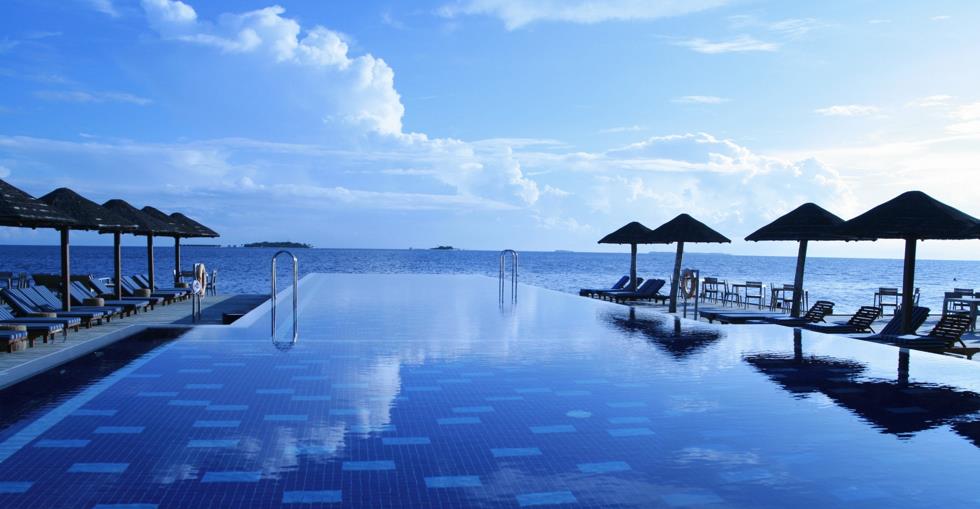The Australian hotel trade has been bolstered by a sharp rise in overseas tourists and business travellers.
If you’ve recently bought a hotel, then these are trends you’ll hope to exploit.
Your first priority is to minimise disruption as you grow accustomed to your new role. Listen to and learn from existing staff – about existing processes and their suggestions for improvements – and familiarise yourself with everything from the cleaning rota to digital marketing strategy.
Once you’re used to day-to-day operations, then you can think about making changes.
Leverage your location
With so many hotels vying for custom, try and pinpoint what distinguishes your hotel from the rest – both positive and negative. But your location should frame what improvements you can – or should – make.
Because location and offering will dictate what guests you attract. For example, a motel will welcome a range of guests for mostly one-night stays, a big CBD hotel will attract a mix of mainly businesspeople and overseas tourists, while a boutique hotel in a historic village in regional Australia might draw domestic tourists looking for a weekend getaway.
Bear this in mind before considering any revamp. There’s no point overhauling your business model to appeal to overseas tourists if you’re based in a sleepy town that doesn’t merit even a passing mention in Lonely Planet.
So leverage the attractions of your location. If you’re a beachside resort hotel, for instance, the proximity to the beach should be the first thing you mention in your marketing pitch.

Adding value
Avoid stagnation by reinvesting some of your profits back into your facilities.
What are you offering guests besides a comfortable bed and clean bathroom? Do you want to capitalise on the popularity of gourmet food and craft beer by adding a bar-restaurant to your premises? Could you introduce a kids club where children can have fun while parents relax by the pool?
Technology and social media
Whether it’s marketing special offers via email newsletters and social media or upgrading from mechanical locks to smart cards, technology can help you stand out from the crowd.
When you consider that every 28 seconds an Australian hotel, bar or restaurant is tagged on Instagram, it becomes clear that social media is a powerful tool. Use social media to give guests a taste of the experience that awaits – like these exemplars of the art – and encourage them to leave reviews about their stay.
Get listed on TripAdvisor. You may already be listed, in which case you can claim your listing, as well as optimise it with photos and relevant information, track your listing’s performance and respond to reviews.
Forward-thinking hoteliers systematically respond to negative reviews, apologising and giving mitigating circumstances for bad experiences (eg “the noise was caused by temporary roadworks, which even our well-insulated walls couldn’t block”, or: “Our prices are the lowest in the CBD so we regretfully cannot afford to offer room service”).
While Airbnb is technically a listing site for private accommodation, hotels are permitted – within certain guidelines – to list on the site.
Online bookings
More than half of online bookings – 58% – are made through online travel agencies, so get listed on as many major portals as possible, such as Expedia, Booking.com, Trivago, Wotif and Agoda.
But these sites do take a cut of each booking, so it’s worth having a booking function on your own website. Moreover, potential customers who land on your site are less likely to call a booking phone number.
It’s worth reading WebRezPro.com’s 11 Practical Ways to Increase Direct Bookings.
The good news for the Australian industry is that the country’s competition watchdog said Expedia and Booking.com had agreed to allow Australian hoteliers to offer lower rates for direct bookings by telephone and walk-ins, albeit not through their own websites.
Cut costs, not standards
Cutting costs recklessly can undermine standards and lead to bad reviews – but lavish spending can tighten margins and leave you unable to cut prices during an economic downturn. Think carefully about ways to streamline operations without compromising service quality.
Restaurant Doctor UK suggests you ask yourself these questions:
- Do you have more staff on duty than you need?
- Do you pay more for your products and services
than you need to? - Are you paying for services that you don't need?
- Do you have a lot of wastage that could be reduced?
- Are you using gas/electricity efficiently?
- Do you buy in items that you could actually make yourself for less?
Hiring and keeping good staff
A successful hospitality business is run on relationships, so reliable, friendly staff are a must. Make your recruitment process as thorough as possible and strive to make your hotel an attractive place to work.
Stay abreast of the market
Hotel bookings rise and fall partly due to myriad factors beyond operators’ control like weather, exchange rates and the global economy. So periodically monitor market trends and re-evaluate your prices, facilities and marketing strategy accordingly.
New to the sector?
If you’re new to the sector, here’s a final piece of advice from Dave Allan, owner of The Rose Hotel in Western Australia: “People need to place a value on their time when making their calculations – people tend to underestimate how much time it requires,” he told us.
“There’s a lot of back-of-house admin and staff issues to solve, which is fine because it’s all part of the business, but people don’t adequately account for that when they first start.”
Whatever the type of hotel you run, success relies on knowing your customers and catering to their needs. Combine this with prioritising recruitment and staff retention as well as keeping abreast of digital marketing and hospitality trends, and you’ll be ahead of the game.
When you’re ready to sell your asset – hopefully now more valuable than when you bought it – here are some tips on how to sell a hotel.
Check out our hotels for sale across Australia.




